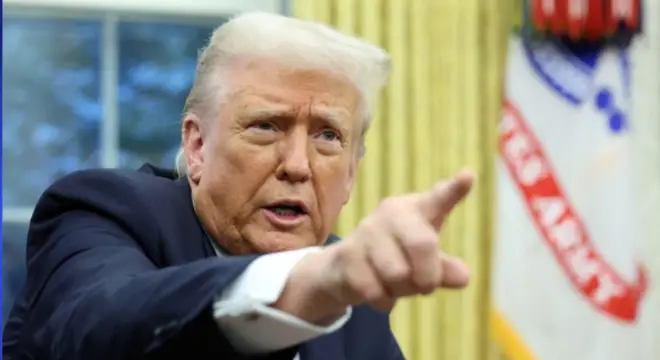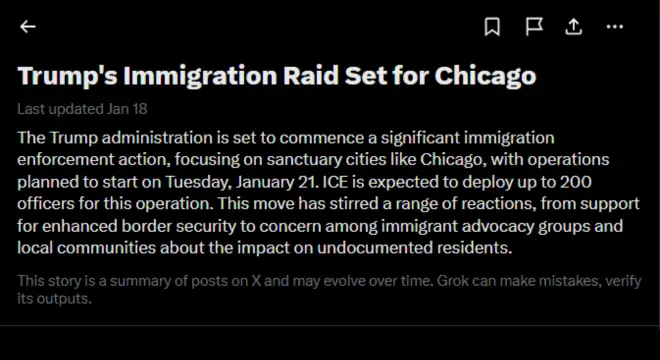How Immigration Policies Are Shaping Beer Shopping Habits in America
Do you ever swing by the liquor store late at night to grab a beer? Have you noticed fewer people doing the same lately? Could immigration policies actually be changing the way people shop — especially after dark? And what if one of America’s best-selling beer brands is now feeling the heat because of it?
It might sound surprising, but this quiet shift is already underway. Since Trump’s immigration crackdown, many — particularly within the Hispanic community — have started avoiding nighttime beer runs, worried about ID checks, encounters with law enforcement, or just the general sense of unease.
Curious how deep this goes? Let’s dive into a story you didn’t know was brewing.
Trump’s Immigration Policies: How They’ve Changed People’s Lifestyle and Shopping Habits
Throughout the duration of his presidency and well into the years following it, Donald Trump’s hardline immigration policies altered for many immigrant communities the way they live their everyday lives. Increasing presence of border patrols, more frequent ID checks, and immigration raids blared with a certain clarity: undocumented immigrants were being watched-and targeted.
A fear factor was created, especially within that Hispanic community, which constitutes a large section of America’s immigrant population and beer drinkers. To some, taking a risk just became an ordinary activity: one might decide to go out alone at night, drive without documentation, or go shopping in certain stores.
In response, a quiet shift began to take place. People started staying in after dark. They avoided places where they might be asked for identification — like liquor stores. What was once a simple beer run after a long day started to feel like a gamble.
Impact on the Beer Market: How Immigration Policies Are Affecting Beer Sales
Trump’s immigration policies have begun to have a noticeable impact on the U.S. beer market, particularly for brands like Modelo Especial and other Mexican beer brands. These brands have traditionally enjoyed strong sales among Hispanic communities, but now, things are starting to change.
Many Hispanic customers, who once frequented liquor stores late at night to pick up their favorite beers, are now avoiding these trips due to fear of ID checks and potential immigration issues. The anxiety surrounding deportation and enforcement has caused many to reconsider their late-night shopping habits.
“We’ve noticed a significant drop in customers during late hours,” said a liquor store owner. “People who used to come in regularly for beer are now staying away or limiting their shopping to daytime hours.“
A distributor also pointed out, “Modelo had an incredible market share, but we’re seeing a decline. Customers are just more cautious these days, and it’s not just about the beer — it’s about a change in lifestyle within a whole community.”

Company Response: How Modelo’s Parent Company is Adapting to the Shifts
Constellation Brands, the parent company of Modelo, is taking a long, hard look at its strategy due to these changes. The company is further assessing ways to manage the changing market dynamics as the late-night shopper declines and as the economic climate turns uncertain.
“Our customers are facing many challenges, while we also keep an eye on trends in consumer behavior. We want to remain responsive for needs in this changing political climate,” said a company representative recently.
In addition, the company is facing a lot of economic consequences of increased aluminum tariffs, which have sent production costs upward for beer cans. Constellation Brands is likely to pay an additional $1 billion every year, courtesy of the additional 25% tariff on aluminum imposed by the U.S. government, to further stretch its bottom line.
To manage these issues, Constellation is rethinking its pricing strategy and considering different ways to streamline production. “We’re actively working to find ways to offset the rising costs, while maintaining our brand’s affordability and accessibility,” said a company representative. “We are committed to ensuring that our products remain available to our loyal customers.“
Expert Opinion / Analysis: The Ripple Effects of Policy on Daily Life
Experts in economics and social studies argue that the effects of Trump’s immigration policies go far beyond politics or legal status. They have tangible, everyday impacts on people’s lifestyle choices, especially among immigrant communities.
Maria Torres, a researcher in consumer behavior, pointed out, “What we’re seeing here isn’t just a shift in political attitudes. Policies like these don’t just affect who can stay and who must go — they change how people live. They change the way people shop, how they interact with businesses, and where they feel safe.”
She added, “The fear of deportation and surveillance has pushed many into a more cautious, restrained way of living. People are more selective about where they spend their money and even more cautious about doing so after hours.”
Sociologist Dr. Carlos Rivera, who specializes in Latinx communities, thus explained: “When a community as a whole begins to live in fear of their status, it seeps into the daily decisions. It is no longer about risk avoidance for a raid; it is almost a mental shift in how people approach something as simple as going shopping or going out for drinks.”
Indeed, experts say, these behavioral changes signify larger and often invisible changes in the socio-cultural and economic fabric of communities that are impacted by strict immigration regulations.
Trump’s Immigration Enforcement Action: Sanctuary Cities Under Threat

The Trump administration is set to initiate a major immigration enforcement action, focusing on sanctuary cities like Chicago. This operation is set to begin on January 21, with ICE (Immigration and Customs Enforcement) deploying about 200 officers. This move has sparked mixed reactions — some see it as a step towards stronger border security, while immigrant advocacy groups and local communities are concerned about the impact it could have on undocumented residents.
Conclusion
Trump’s immigration policies have quietly reshaped how people live and shop, especially among Hispanic communities. What once seemed like ordinary behavior — a simple late-night trip to buy beer — is now influenced by fear and uncertainty. This subtle change shows just how deeply public policies affect not only politics but also our daily lives.
The question is: What other everyday choices are being quietly altered by the policies we often overlook?


